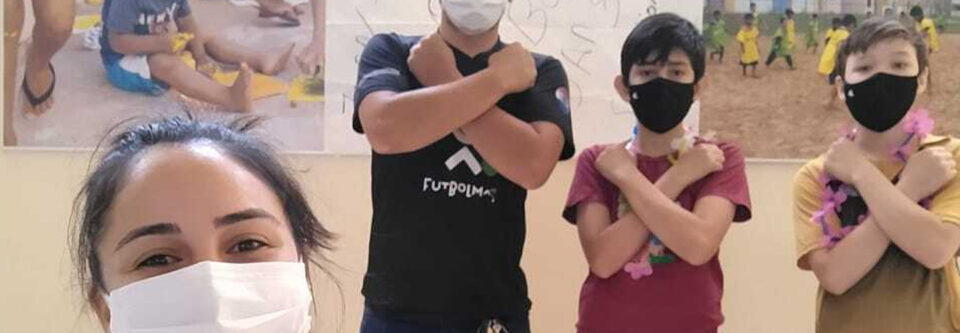Triangular Cooperation to strengthen coexistence

The project between Chile, Spain and Paraguay in San Francisco neighborhood reveals sport’s potential as an instrument to improve coexistence.
The role of sport as an instrument to achieve individuals’ physical and mental health is widely known. However, in recent years, its recognition as a tool for social intervention to improve coexistence and the achievement of peace has become more widespread. For example, the 2030 Agenda makes a specific reference to the United Nations Action Plan on Sport for Development and Peace, stressing the role of this discipline for these purposes:
We recognize the growing contribution of sport to the realization of development and peace in its promotion of tolerance and respect and the contributions it makes to the empowerment of women and of young people, individuals and communities as well as to health, education and social inclusion objectives. (UN, 2015, p. 11)
There are worldwide examples of the use of sport as an instrument for social change in fragile contexts, among which the experiences of Colombia, Brazil, Haiti, South-Africa or India should be highlighted (Badia, 2017), as well as in the framework of South-South and Triangular Cooperation.
In this sense, the project “Strengthening healthy coexistence processes in San Francisco neighborhood”. between Chile (first provider), Spain (second provider) and Paraguay (recipient), aimed at preventing violence and at strengthening coexistence among children and adolescents of between 6 and 15 years through football, began in 2019. This initiative is implemented in the framework of Phase II of the Mixed Fund for Triangular Cooperation between Spain and Chile, created in 2009 to strengthen technical cooperation between these two countries and to promote development in Latin-America and the Caribbean.
The project responds to the need to assist families affected by the floods that took place in Bañados de Asunción in 2014, one of the largest floods Paraguay has suffered in recent years, affecting more than 6,000 families which settled in the most vulnerable areas of the Paraguayan capital. Shortly thereafter, problems associated with resettlement and adaptability arose, occasionally resulting in conflicts among inhabitants.
The project aims to foster the resilience of its beneficiaries, a fundamental process both among the neighborhood’s residents and within schools. In this framework, efforts are carried out so that children and adolescents can be trained to have tools to promote healthy coexistence and community leadership. Key stakeholders such as parents, teachers, community youth and others are also involved in the process through socio-sports workshops, facilitated by teams of professionals in sports and social sciences.
Fútbol Más, a foundation that has been carrying out training and coexistence processes for more than 10 years, promoting the welfare of children and adolescents living in socially vulnerable contexts or who have been affected by natural disasters or humanitarian crises (Fútbol Más, 2020), also takes part in this initiative. In this sense, the initiative’s key driving force is sport as an educational tool, but also as a suitable space for the peaceful resolution of conflicts and controversies.
April 2021
*
Source: SEGIB based on Badia (2017), Chile-Spain Triangular Cooperation Mixed Fund (2020), UN (2015) and Fútbol Más website (2020).